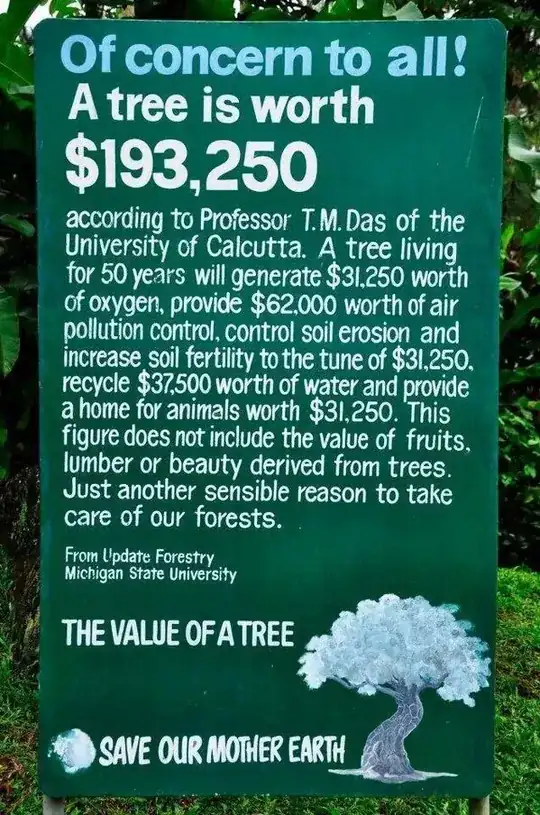There is a sign, at the Eden Nature Park & Resort in City of Davao, Philippines, that says this:
Of concern to all! A tree is worth $193,250
According to Professor T.M.Das of the University of Calcutta. A tree living for 50 years will generate $31,250 worth of oxygen, provide $62,000 worth of air pollution control, control soil erosion and increase soil fertility to the tune of $31,250, recycle $37,500 worth of water and provide a home for animals worth $31,250. This figure does not include the value of fruits, lumber or beauty derived from trees. Just another sensible reason to take care of our forests.
From Update Forestry Michigan State University

The figure, sometimes incorrectly quoted as $196,250, is cited at various green blogs, and sold on a bright red poster at Singapore Zoological Gardens, but i haven't been able to find the study behind it.
So is a tree living for 50 years worth $193,250?